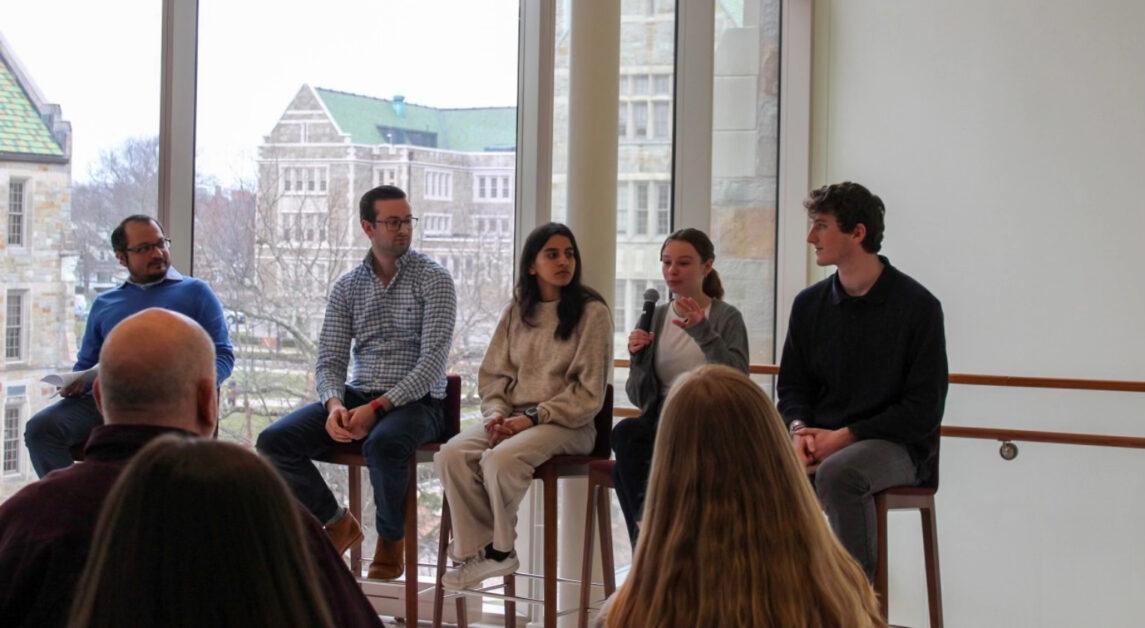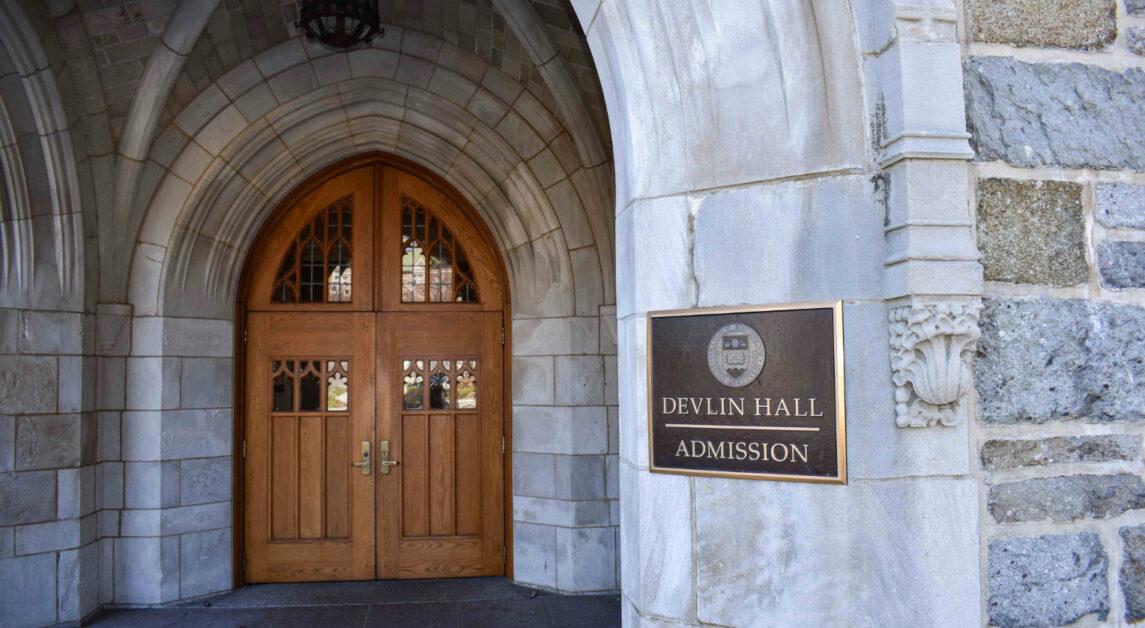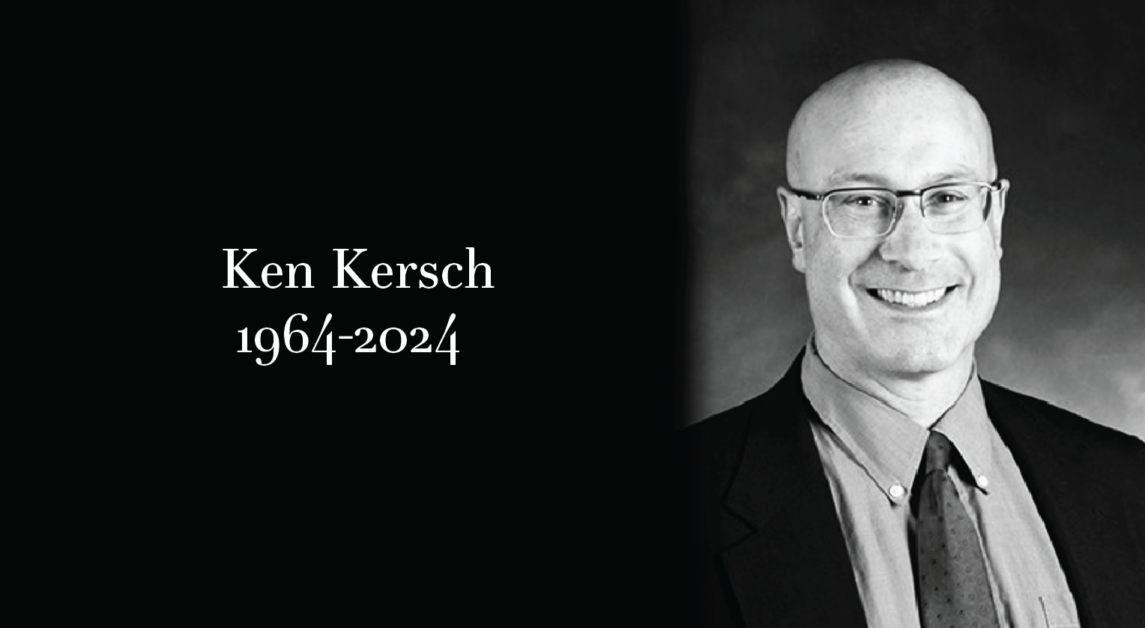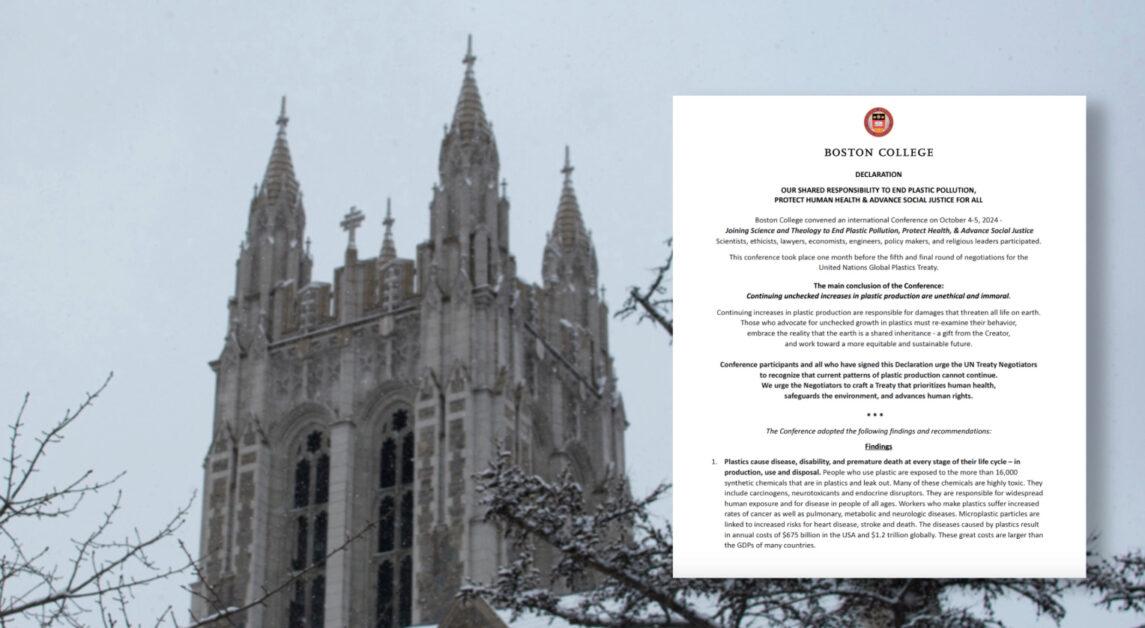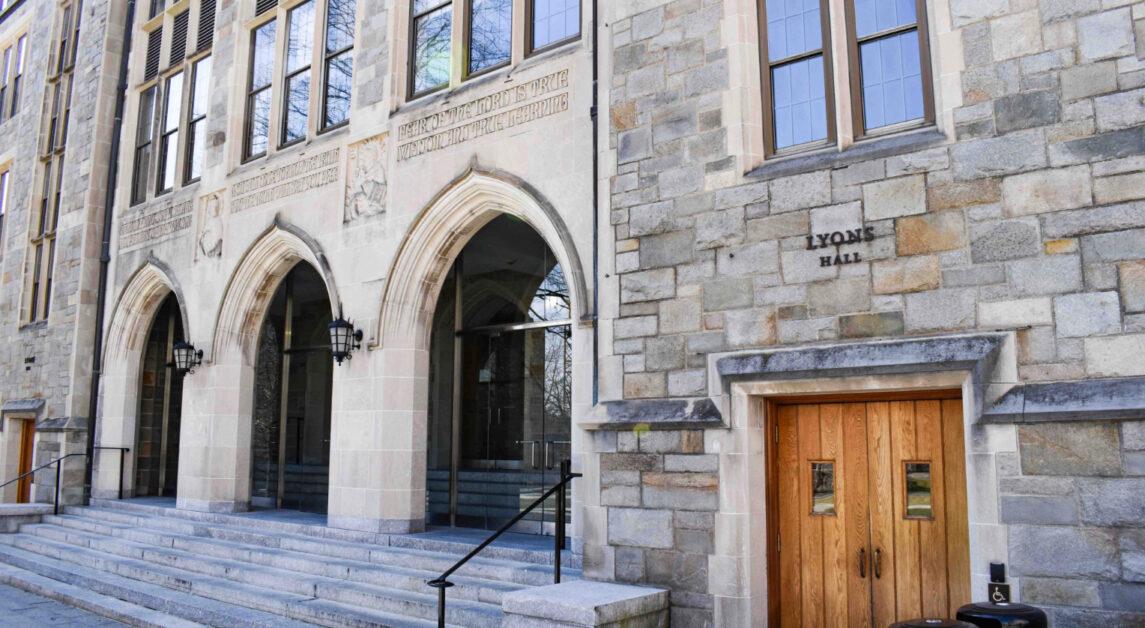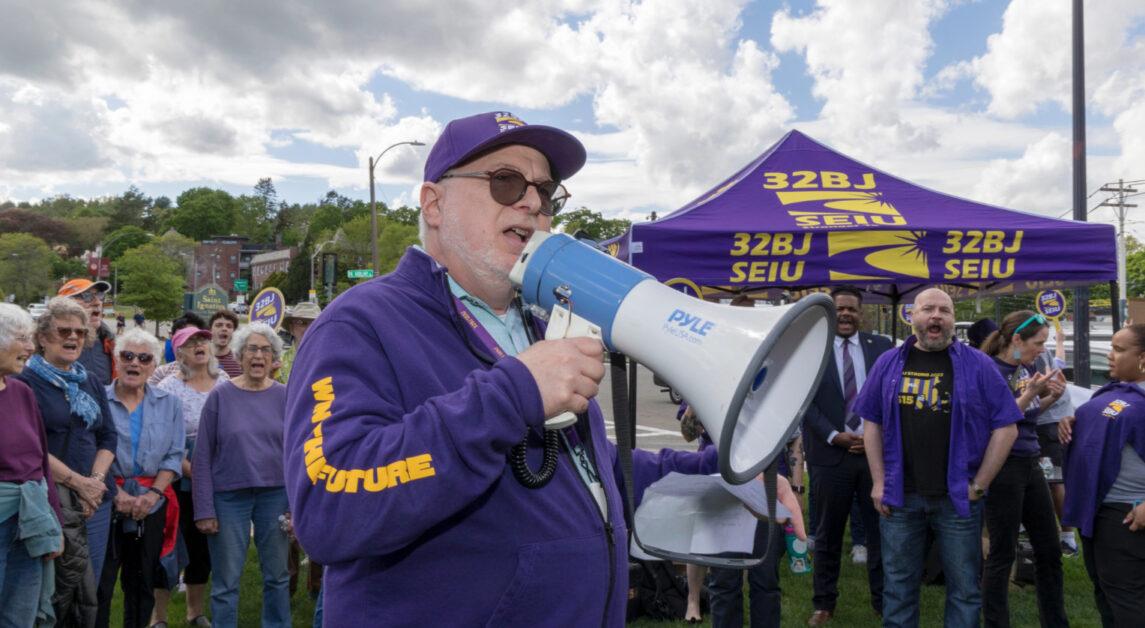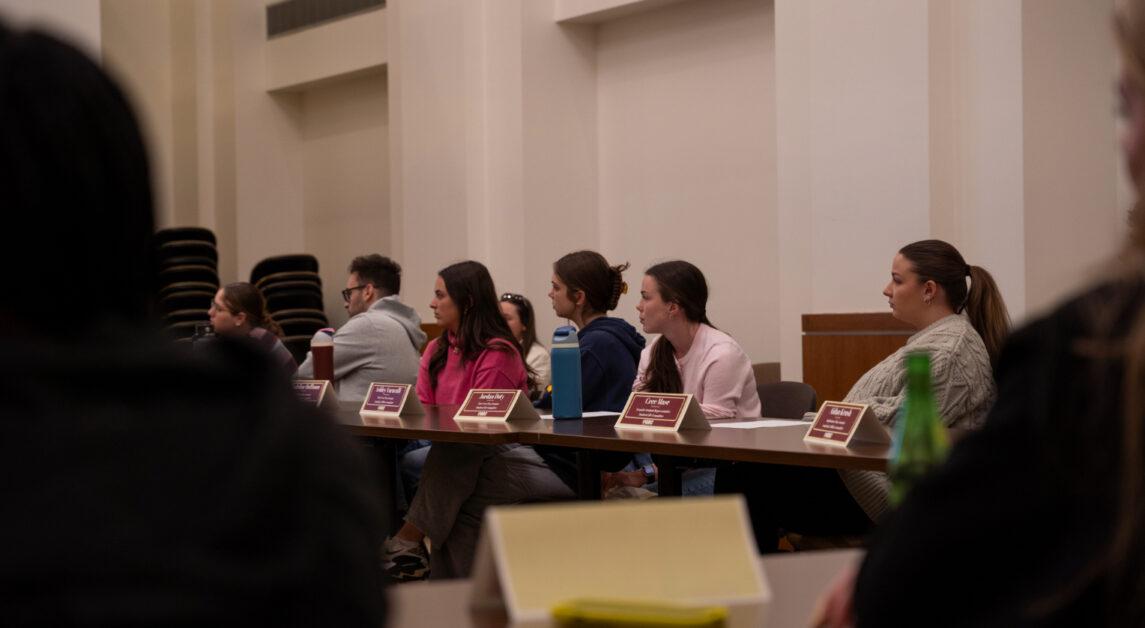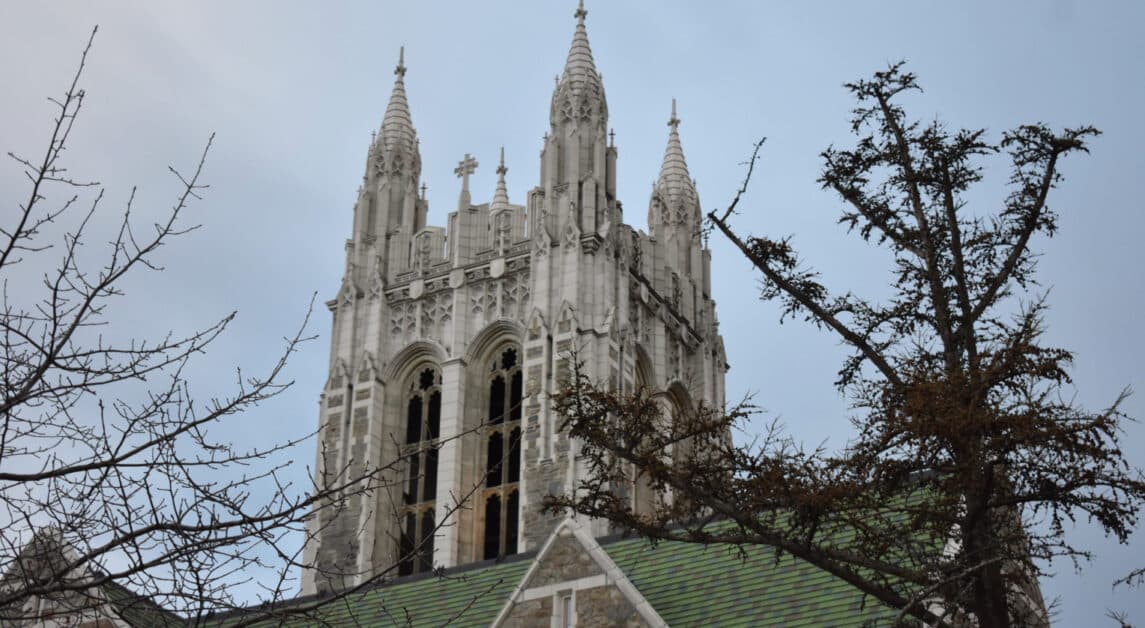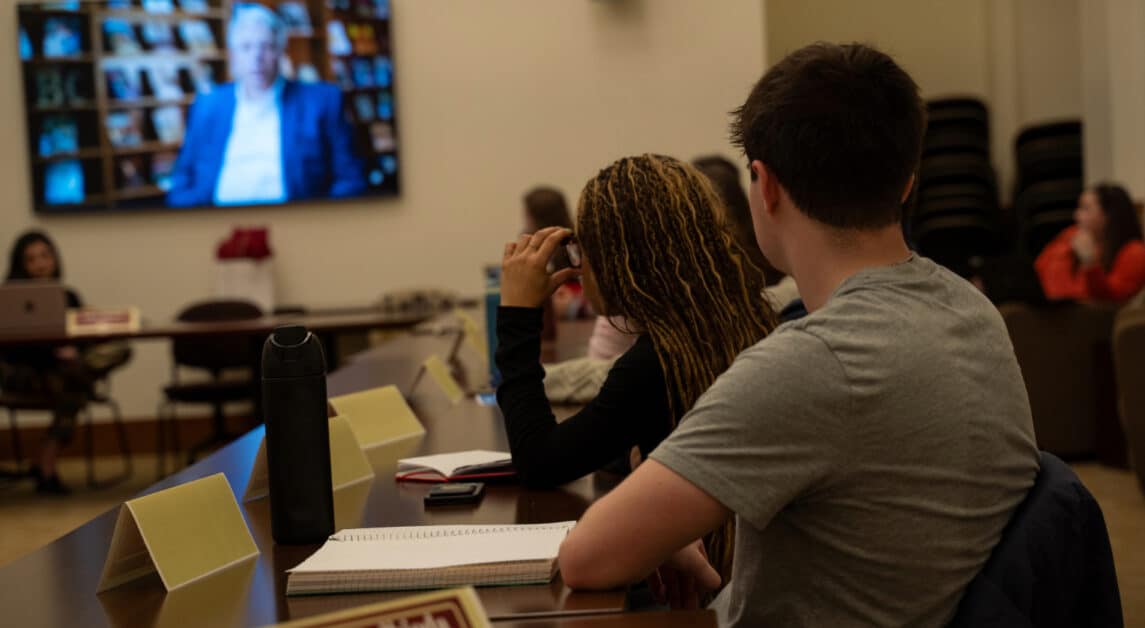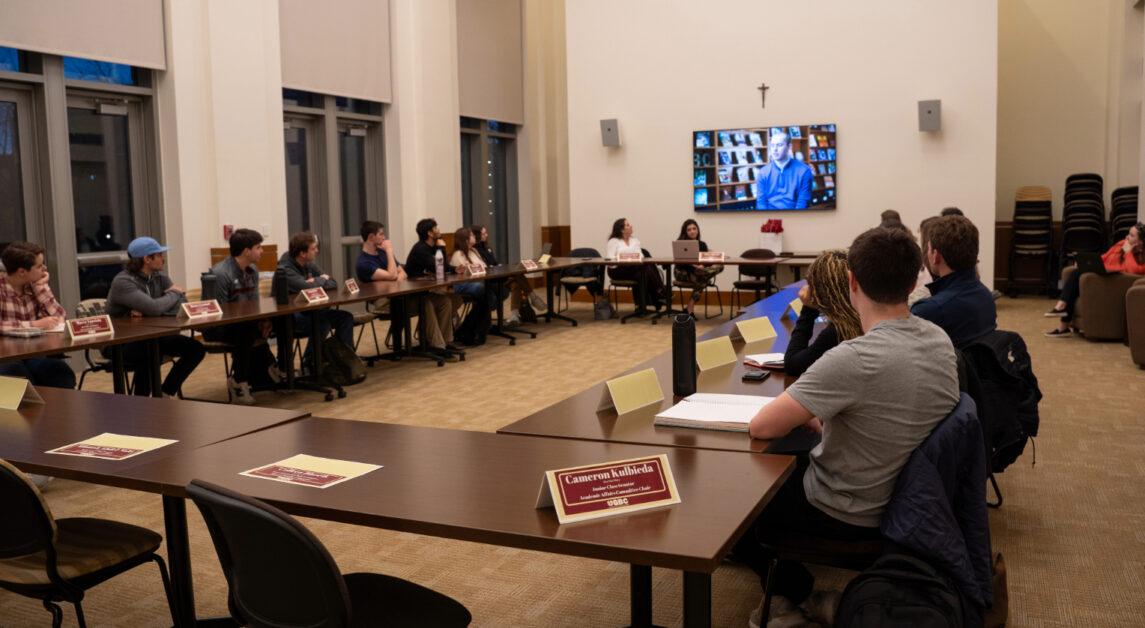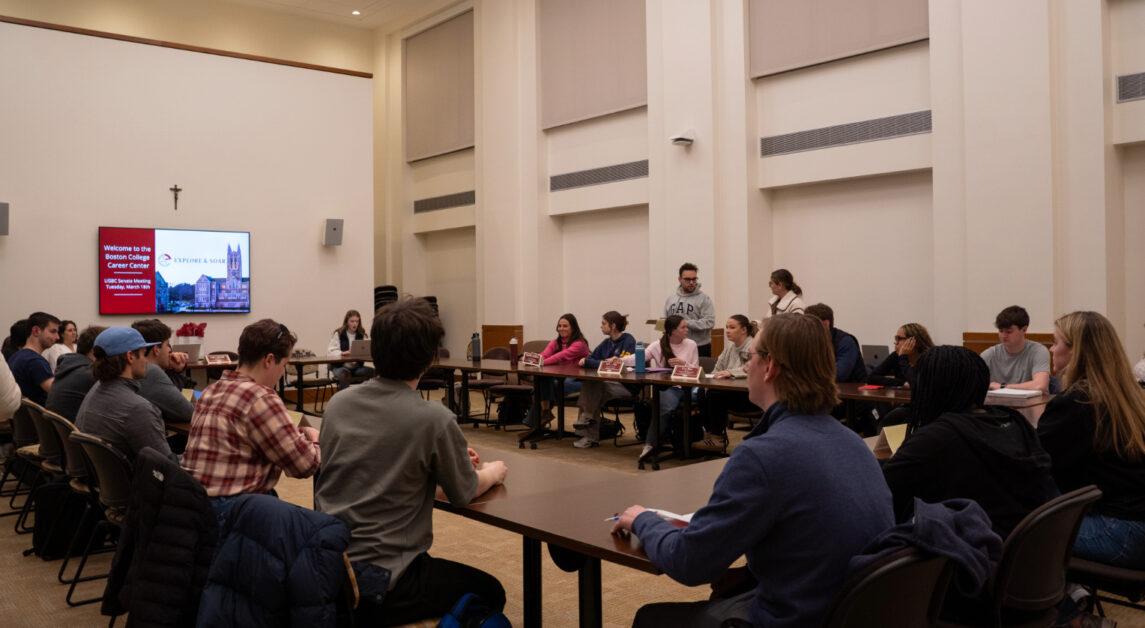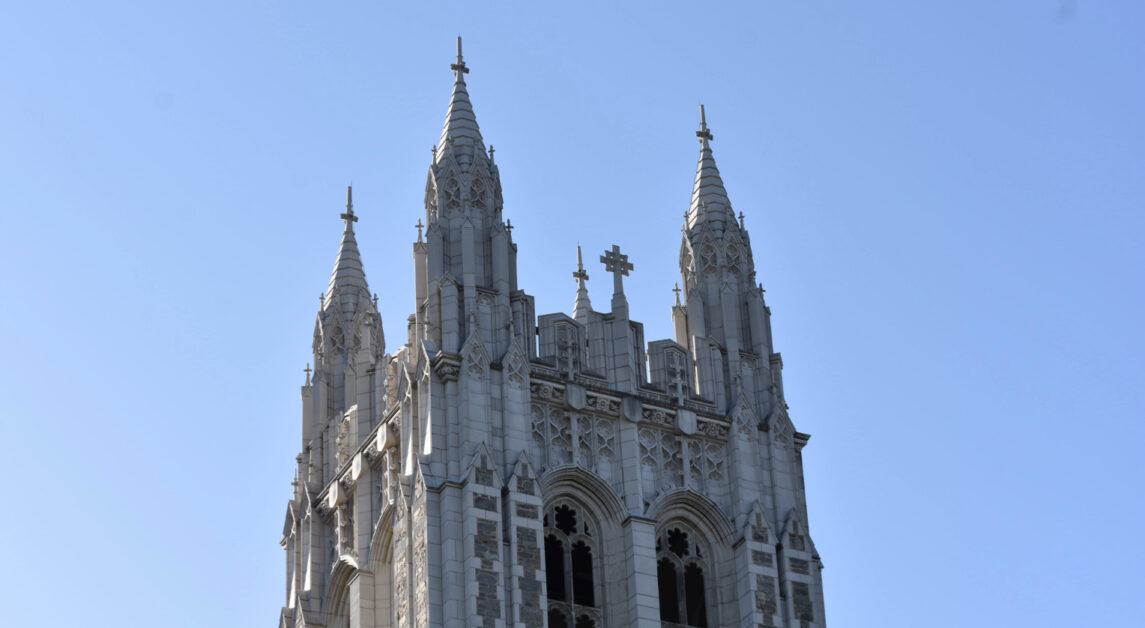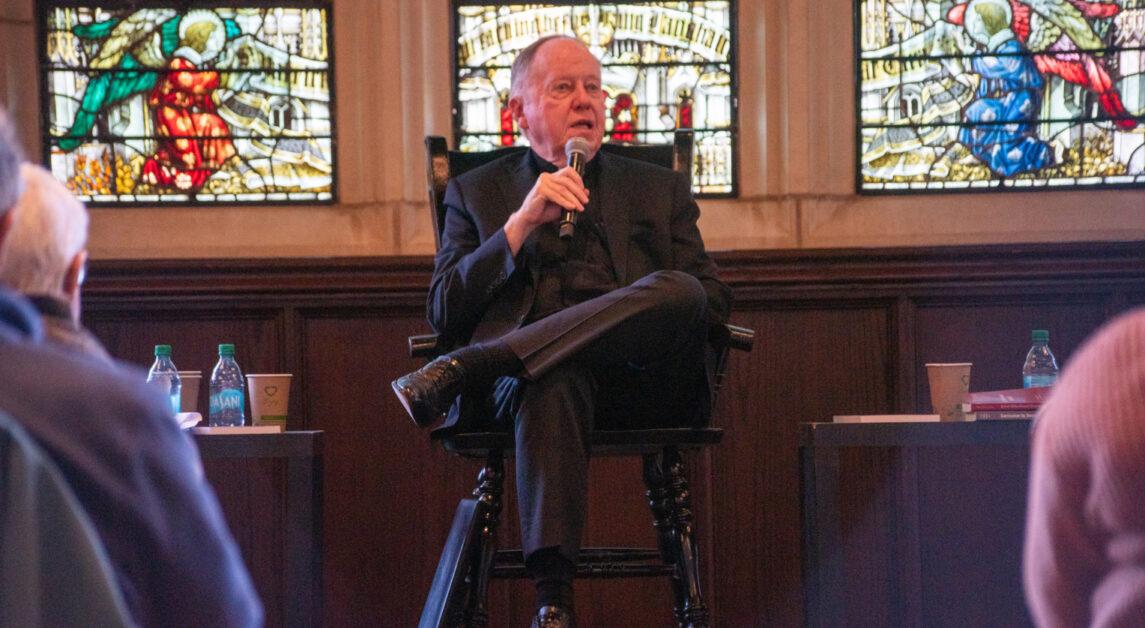There is incremental progress made at every United Nations Climate Change Conference (COP), according to Edwin Ward, Boston College COP28 delegate and BC Law ’24.
“If you’re hoping that we are going to solve climate change with some agreement, it’s not going to happen,” Ward said. “Every year, we have to push countries a little bit, because that’s the best we can do.”
On Friday, the Schiller Institute for Integrated Science and Society hosted a COP28 symposium, featuring panels of BC students and faculty who attended the COP28 conference in 2023.
The conference lasted two weeks, spanning from the end of November to mid-December, with each day focusing on a different piece of the climate crisis.
Jonathon Strang, MCAS ’25, said he chose which meetings to attend each day based on his personal interests.
“You wake up pretty early, usually around 7:00 a.m., and then you have breakfast as a delegation and try to plan out your day, figure out what events are you going to try to attend, what exhibits and facilities you want to go to, and then you get on the bus,” Strang said. “You spend the majority of the day going from meeting to meeting.”
Strang said he attended various talks throughout the conference to broaden his understanding of climate change issues.
“I really just tried to get an overall sense of all the different things going on,” Strang said. “So I would go to the pavilion, then I would go to a meeting with NASA, and then I would go to a high-level meeting with the president of Botswana, and then go to a negotiation.”
Gabriela Levitt, another delegate and MCAS ’24, said gender plays a significant role in the scientific world and that her favorite talk was about “delivering a gender-responsive, just transition for all.”
Levitt said the setup for the meeting was based on policy solution workshops, while remaining true to the overall topic chosen for the day.
Strang and the other delegates said there were also many policymaking meetings at the conference that the general public could not attend.
“One of the things that we didn’t realize at first, but then quickly realized, was that at COP, a lot of meetings that you want to go to are closed door,” Strang said.
One policy to combat the climate crisis is the Paris Agreement, an international treaty working to reduce global greenhouse gas emissions that began at the COP21 conference in 2015.
Ward noted that the Paris Agreement is not binding, which he said he continues to question.
“It’s not a binding international treaty,” Ward said. “For me, coming into law school, my question was always, ‘Why? Why can’t we make it binding and countries must reduce their emissions, or else they will get penalized?’”
But while the Paris Agreement is voluntary, it has still proven effective, Ward said.
“There would be no buy-in for that, unfortunately,” Ward said. “It is very much a voluntary agreement, but it’s also effective as you get great buy-in that you wouldn’t get a lot in other situations.”

